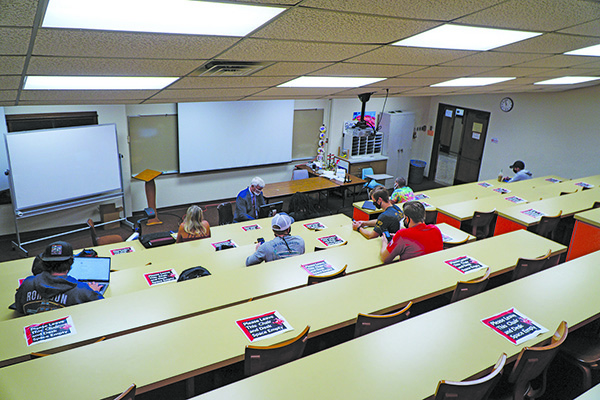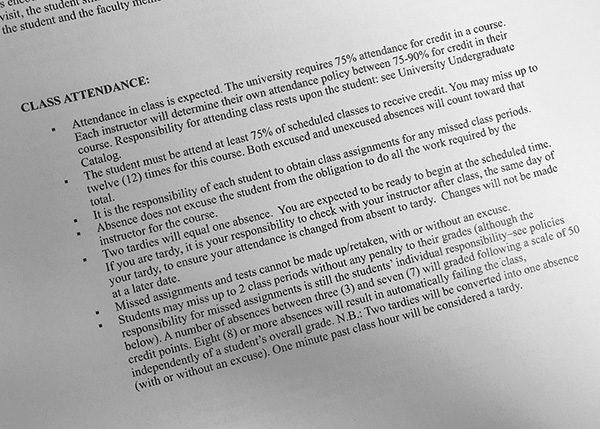By J.D. EDDY, Editorial Editor

Attendance at Northwestern, like other universities, is an issue not just for the students, but also the faculty.
The policy at Northwestern is 75% attendance to receive credit in the course, according to the university website.
In an average spring semester at Northwestern, there are 41 days in a course that meets three times a week.
The 75% attendance is not too bad. That it is 11 days that you can miss before not receiving credit in the course.
Having an attendance policy like this requires students fresh out of high school to be responsible. Having this kind of weight on their shoulders now is stressful.
At least it was for me, which is why I bring it up. Most freshmen have had the luxury of their parents or guardians waking them up for school.
In high school, you have the same schedule every day. Most schools do not change what classes students have to take until the next semester has started.
Everyone at this school knows that is not how college works; you can have classes at 6 p.m. Then, the next day, you can have an 8 a.m.
Circumstances can arise that can prevent students from attending class.
If you’re not an athlete, waking up for an 8 a.m. class is not enjoyable, especially if you have this class three days a week. Some professors will allow students to accumulate only five absences; it is all up to whoever is teaching the class.
When I had a class at Southern Nazarene University three days a week, the professor said that if we missed the class more than five days, we would have to drop. At the same time, we could not get a refund on the class.
Stuff like this makes me dislike the school’s attendance policy.
We pay to go to school here and learn at our own pace.
Now let’s consider the faculty point of view. It is not hard to figure out that the professors want us to attend class.
The thought process is that we need to show up to class to pass. That being said, students will face repercussions if they don’t attend class.
Most professors have a policy that lowers grades for non-attendance.
Take this for example: One professor I had last semester said that, if we missed more than six days, then it would start to affect our grade, lowering it by five points for each absence after the sixth one.
While I think this does not make sense, I can see where my professor was coming from. Showing up to teach the class every day, he felt disrespected if we didn’t show up.
Regardless of that, professors get paid whether or not we are there. The point I want to make is that the policy needs to be updated.
Students are paying to come to class, so we should be able to determine how much we want to attend without sacrificing our grade.
Since the pandemic began, most schools have used virtual learning. Why not just ask students who can’t attend in-person to watch the recorded lecture? There are ways to record the lectures on the school’s cloud network.
I am taking a class remotely that is conducted in-person, instead of saying that I cannot take the class. I have a special situation where two classes I need to graduate are at the same time on the same day.
The professor of the class I can’t attend in-person is recording the lectures, sending them to me and allowing me to take all my tests later because of the nature of my situation.
This is how schools can handle some of the attendance issues: by allowing students to attend classes virtually, and giving them a way to watch the lectures if they miss class.

